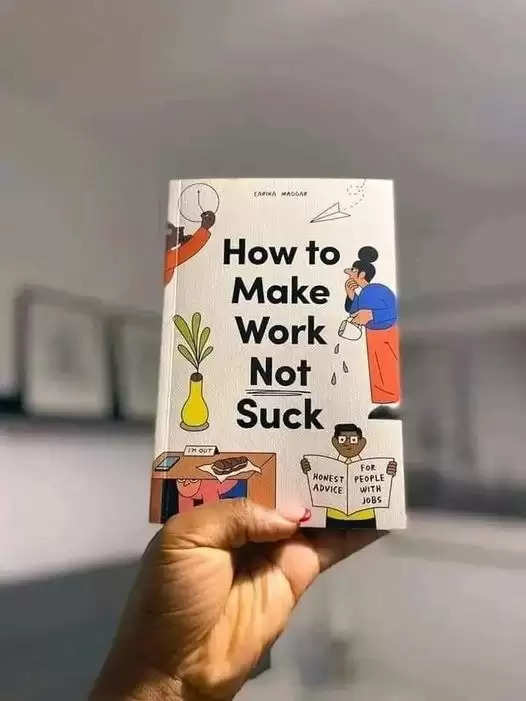7 Lessons from "How to Make Work Not Suck" by Carina Maggar

1. Create a Positive Work Environment:
First up, let’s talk about your workspace. Maggar emphasizes the importance of creating an environment that not only suits your needs but also boosts your mood. This doesn’t mean you need to redecorate your entire office, but small changes can make a big difference. Think about personalizing your space with items that make you smile or bring you comfort. It could be a favorite mug, a plant, or even a cozy throw. Additionally, building good relationships with your colleagues can transform your workplace atmosphere. When everyone is friendly and supportive, it’s easier to face challenges together and make workdays more enjoyable.
2. Set Clear Boundaries:
Balancing work and personal life can be tricky, especially with today’s blurred lines between the two. Maggar advises setting firm boundaries to ensure you don’t end up working around the clock. Establish specific times for work and stick to them. When the workday is over, make a conscious effort to disconnect and shift your focus to relaxation and personal time. This separation is crucial for preventing burnout and maintaining a healthy balance between your professional responsibilities and personal life.
3. Prioritize Tasks Effectively:
Do you ever feel like your to-do list is too long? Maggar says that to keep things under control, you should learn how to handle your time well. Make a list of your most important jobs and put them at the top. Use calendars or project management apps to keep track of meetings and due dates. Putting your work into manageable parts can help you feel less stressed and more capable of completing your duties. Setting priorities well will help you stay on top of your work and make you feel more in charge of your day.
4. Communicate Openly and Honestly:
Communication is important for any job to go well. Maggar stresses how important it is to be honest and open with your bosses and coworkers. Instead of letting problems grow, dealing with them as they come up helps clear up any confusion and encourages a good work environment. Having constructive talks can help you solve problems more effectively and create a safe space where everyone feels valued and heard.
5. Find Meaning in Your Work:
Getting a sense of meaning from the work you do can make you much happier at work. Maggar tells you to connect your work to a bigger goal or your own values. Think about how your job fits in with your personal goals or how it helps the organisation reach its goals. Seeing how your work affects the world can motivate you and give your job more meaning.
6. Take Regular Breaks:
Working non-stop might seem like the way to get more done, but it often leads to burnout and decreased productivity. Maggar advocates for incorporating regular breaks into your workday. Short, frequent breaks can help you recharge and maintain focus. Whether it’s a quick walk, a coffee break, or just stepping away from your desk for a few minutes, these pauses can refresh your mind and keep you energized throughout the day.
7. Seek Opportunities for Growth:
Lastly, staying stagnant in your career can lead to boredom and frustration. Maggar advises actively seeking opportunities for professional growth. This could involve pursuing additional training, attending workshops, or finding a mentor to guide you. By continuously developing new skills and seeking out new challenges, you keep your job interesting and continue to grow in your career.
You can greatly improve your job satisfaction and general work experience by putting these useful tips from "How to Make Work Not Suck" into practice every day. These tips are meant to help you not only get through the workday but also enjoy it, whether it's by making your workplace better, setting clear limits, or finding meaning in your job. When you put in a little work and use these tips, you can turn work into something that you actually enjoy.

Book: https://amzn.to/3X2tMXp
--
-- Class Dismissed --
You Might Also Like: 15 Essential Lessons on Leadership from Greg Bus’s “How Leaders Decide”
